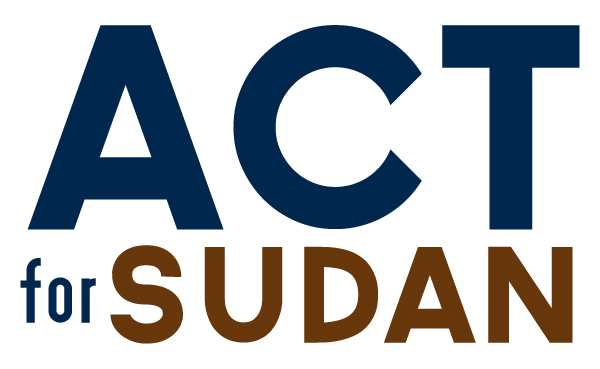Act for Sudan calls on President-elect Trump dramatically change the dynamics and effectiveness of U.S. policy on Sudan by implementing a strong policy to end the government-sponsored violence in Sudan, protect civilians, ensure unhindered humanitarian access for those in need, and bring the perpetrators of genocide and mass atrocities to justice at the International Criminal Court.
President Obama’s policy on Sudan was a stunning failure that must be corrected by the next president. The Obama administration frequently expressed grave concerns, but pursued a policy of engagement, employing conciliatory diplomacy rather than confronting the regime in Sudan with consequences for genocide and crimes against humanity. Over Obama’s eight years, Sudan’s President Bashir and the ruling National Congress Party (NCP) learned that there are few or no real consequences for their actions. They learned that they can ignore international demands while making no real changes to the policies that earned it international condemnation.
We ask President Trump to make a clear break from President Obama’s failed policy on Sudan. An improved U.S. policy on Sudan does not begin with reducing the pressure of economic sanctions, but rather with setting clear and high-performance goals that include dramatic improvements in respect for human rights and civilian protection and a complete end to blocking humanitarian aid.
The U.S. must implement a new pro-democracy and civilian protection-oriented policy that holistically addresses the root cause of Sudan’s multiple conflicts: the repressive and genocidal Sudan regime.
U.S policy on Sudan must reflect the continuing strategic threat that the government of Sudan poses, not only to its people, but also in destabilizing its neighbors and the region; in supporting terrorism inside Sudan and internationally; and in its leadership role in the violent extremism of the Muslim Brotherhood.
U.S. policy on Sudan has allowed the genocide in Darfur to continue and the same government to initiate another genocide against its people in the Nuba Mountains and Blue Nile regions of Sudan. Crimes against humanity, war crimes, obstructing U.N. peacekeepers, mass rape, cultural obliteration, bombing of civilians, contravening a variety of U.N. Security Council demands, and blocking humanitarian assistance are commonplace even as millions of Sudanese in regions around the country suffer from crisis and emergency levels of food insecurity. Religious persecution is on the rise with the government arresting pastors, threatening them with execution, and confiscating churches. In addition, Sudan has been permitted to provide money and weapons to renegade elements to destabilize its neighbors, including South Sudan and Libya, and to support jihadi terrorists and Islamic extremists in the region, including Mali, Libya, and Gaza. Reports of Sudan using chemical weapons against civilians illustrate the heinous nature of the regime in Khartoum and reflects its sense of impunity.
U.S. policy on Sudan must change in order to change the political calculations of the government of Sudan.
The United States must confront the crises in Sudan, end the genocide and mass atrocities, and set Sudan on a path to peace and justice.
Confronting the regime in Sudan should include implementing some or all of these actions:
- Appoint Africa experts to key positions in the State Department and National Security Council who understand the nature of the regime in Sudan and the strategic problems it poses, and who are committed to creatively resolving those problems, rather than allowing the crises to fester. Potential appointees should be rejected if they are apologists for the regime who oppose sanctions or downplay the regime’s role in terrorism and extremist violence, or if they are academics without passion for resolving the conflicts.
- Not only enforce all current U.S. sanctions, but also oppose debt relief and cash transfers to the government of Sudan, discourage investments in Sudan and trade missions to Khartoum, and work to increase economic pressure on Sudan both unilaterally and multi-laterally, thereby strengthening the effects of U.S. sanctions. In addition, work to identify, freeze and recover assets stolen by Sudanese officials so that they can be used for the benefit of the people of Sudan.
- Support an end to the NCP’s control of the government of Sudan.
- Support the movement within Sudan for true democratic transformation.
- Build a coalition of allies to arrest President Bashir and hand him over to the International Criminal Court for prosecution.
- Support the SRF rebels who are under attack by the Sudan government and are united with a vision for a democratic, secular, inclusive Sudan and a program for democratic transformation.
- Build the capacity of Sudanese groups on the ground, who are not associated with the government of Sudan, to become more effective partners in humanitarian relief, including working with groups aligned with the SRF.
- Start delivering humanitarian aid to the starving Sudanese civilians in the Nuba Mountains/South Kordofan, Blue Nile, and Darfur, with or without agreement from the government of Sudan or the U.N. Security Council, with multilateral partners or unilaterally, and with the urgency required to save desperately needy people. Cargo planes should be dispatched immediately to airdrop food to areas in need.
- Help protect Nuban, Blue Nile, and Darfuri populations from attacks by notifying President Bashir that the United States will selectively destroy Sudan’s offensive aerial or other military assets that engage in attacking civilian targets, and do so if the warning is not heeded.
